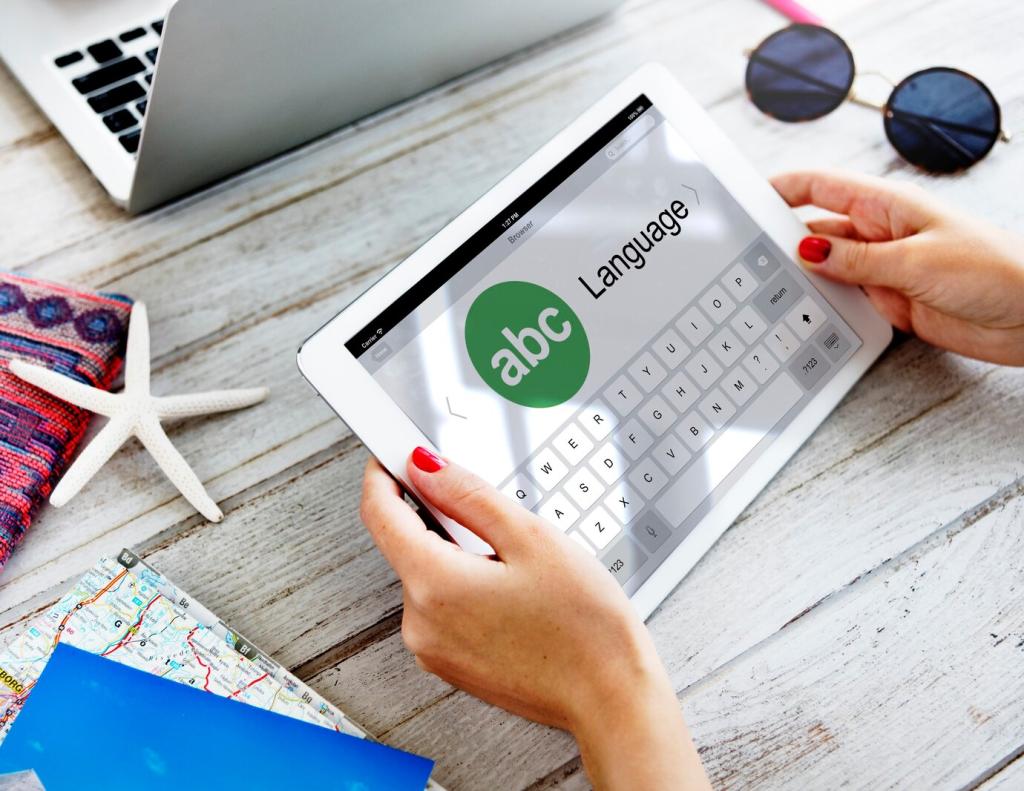Chosen theme: Essential Skills for Successful Language Translators. Welcome to a friendly hub where precision meets creativity, and every nuance matters. Explore the mindset, methods, and tools that elevate translators from competent to remarkable—and join our community by subscribing for weekly, skill-focused insights.
Linguistic Precision and Style Adaptation
A successful translator knows when to stay faithful and when to breathe life into a sentence. Aim for clarity and flow, not literal mimicry, so readers never feel the original language peeking awkwardly through.


When Literal Fails: Culture-First Problem Solving
A nonprofit tagline may read beautifully in one culture and fall flat in another. Translate intent, not just words, by researching local references, sensitivities, humor, and taboos before committing to a final phrasing.

Localizing References Without Losing Soul
Replace untranslatable idioms with equivalents that carry the same emotional charge. If a proverb anchors the message, consider a translator’s note or an elegant paraphrase that respects both the author’s voice and reader comfort.

An Anecdote About a Misread Metaphor
A tech brochure once praised a product as a ‘quiet beast.’ In the target market, that sounded menacing. A careful translator reshaped it into ‘powerfully silent,’ preserving praise while avoiding unintended alarm.
Research Mastery and Terminology Management
Create a glossary early and update it ruthlessly. Include term definitions, context examples, client preferences, and rejected alternatives, so future decisions remain consistent and new collaborators onboard smoothly.
Research Mastery and Terminology Management
Check parallel texts, reputable dictionaries, and expert forums. Compare usage in academic journals and real-world documents, then cross-verify against client materials. If uncertainty remains, flag it and propose options thoughtfully.


Technology Toolkit: CAT, QA, and Productivity
Translation memories and termbases accelerate repetitive work and maintain consistency. Still, every segment deserves a human eye for rhythm, pragmatics, and cultural fit—technology complements, but never substitutes, craft.



Subject-Matter Expertise and Domain Familiarity
Whether it’s biotech, fintech, or climate policy, a niche multiplies your value. Read trade publications, attend webinars, and build client-specific knowledge so your translations sound native to the industry.
Subject-Matter Expertise and Domain Familiarity
Skim standards, guidelines, and frequently cited papers in your domain. The extra context sharpens intuition, reduces dithering over terms, and helps you spot contradictions or outdated claims before they mislead readers.
Quality Assurance, Editing, and Self-Revision
First pass for meaning, second for style, third for formatting and numbers. By separating concerns, you reduce cognitive overload and catch issues that hide when everything is checked at once.
Professional Ethics, Communication, and Client Care
Protect client data as carefully as your own. Use secure tools, avoid public screenshots, and never recycle proprietary phrasing. When in doubt about disclosure, ask before sharing—even anonymized samples can betray context.


Professional Ethics, Communication, and Client Care
Clarify ambiguities early, propose options, and document decisions. Clients appreciate translators who ask the right questions instead of guessing. It saves revisions and turns deadlines into cooperative milestones.
